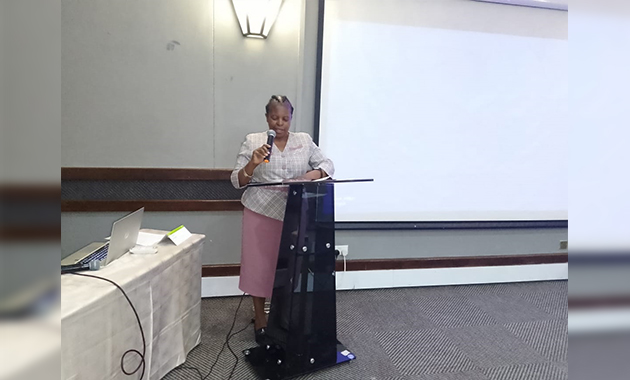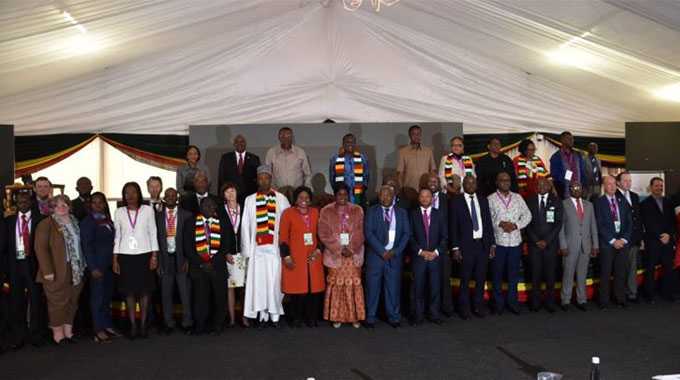Crimes of passion: children suffer the brunt

Obey Sibanda, Features Reporter
PEOPLE in the gallery wept when an 8-year-old girl took to the stand to narrate how her father’s brutal butchering of her mother as she watched shattered her family.
She told Bulawayo High Court Judge Justice Maxwell Takuva, who was on circuit in Hwange in 2017 that she watched her father, Pathukuthula Moyo callously axing her mother repeatedly over infidelity accusations.
She appeared to shudder each time she mentioned the blood that gushed out of her mother’s wounds as her father frenziedly struck her.
“I heard my mother screaming and when I rushed to check she was lying on her stomach in a pool of blood as he struck her. He then stood next to the body holding a blood stained axe. After that he dragged the body into the kitchen and left it,” narrated the emotional minor while trying to get composure.
She appeared traumatised. Moyo believed his wife was seeing another man, and this filled him with deep jealousy. He came up with a plan. The “plan” involved an axe. The murder was premeditated; he had brought the axe to the house with him earlier that morning.
Moyo told the court that he acted out of anger following his wife’s infidelity. He said on the day the assault took place, he spotted a male person leaving the homestead in the early hours as he arrived from his workplace but the wife instead became harsh when he quizzed her.
Moyo appeared to believe he was justified in killing his wife for infidelity, after all- he pointed out- he had paid lobola for her.
Almosy every day in the newspaper there is a sad reading of spouses who would have been killed by their partners in cold blood as a result more and more children are plunged into poverty.
Children left behind no longer have mother or father to guide, protect or love them. They are hungry, lonely, afraid, and open to abuse by relatives and society. Their lives become an uphill task as they face the greatest challenges on the face of the earth.
The wider family support network evaporates. Children are left alone and ashamed with no one to look up to. During the official opening of the circuit court in Hwange the judge lamented the rise in the crimes of passion.
He emphasised that the court should pass a sentence that fits the circumstances because society expects it to sufficiently punish offenders.
“If that’s not done, society will take the law into its own hands which prejudices the justice system. Phathukuthula Moyo, you are sentenced to 30 years in prison,” ruled Justice Takuva.
The courts have undoubtedly made positive strides regarding the sanctity of life by awarding lengthy sentences to offenders that are perceived as warning to would-be offenders but nothing has been done to alleviate the lives of poor children who are orphaned as a result of crimes of passion.
For years civic society and non-governmental organisations have been lobbying for stiffer sentences for murderers but they have turned a blind eye on the livelihoods of the children left behind. What happens to the children after their parent is sentenced is anyone’s guess.
Children left behind will be condemned more than their “monster” father or mother as if they contributed to the death of their parent. The convict’s welfare will be taken care of behind bars. The State provides them with food, clothes and shelter while the children are left on their own at a tender age.
Safe homes have been built throughout the country which accommodate abused women but there is nothing to cater for children who are orphaned as a result of crimes of passion. They deal with the loss of the parent on their own terms without any psychological support.
According to Ms Lethokuhle Mabhena, a coordinator at Child in Christ Trust, an organisation that deals with orphaned children, all children orphaned by the death of one parent at the other’s hands should be sent to a child psychiatry department as soon as possible and assessed.
“An immediate crisis intervention will probably be needed if they witnessed the killing to prevent post-traumatic stress disorder (PTSD), a mental health condition that’s triggered by a terrifying event,” said Ms Mabhena.
Added to emotional and psychological distress caused by destruction of the family, material vulnerability afflicts any type of orphan.
Chronicle recently tracked down the girl who, four years ago, testified against her father in her rural home. She is now 10 years old, had to forgo her education and do menial jobs for villagers in order to bring food to the table.
The girl and her siblings now live with their frail grandmother who is in her late eighties and cannot even scrub herself.
“After the death of our mother I had to grow up and be a woman since there is no one to look after us,” said the minor who looks way older than her age.
Factors such as loss of household incomes often leave orphaned children impoverished. These vulnerable children are easily dispossessed of their inheritance when the parent dies, which increases the economic problems already present.
Reduced economic capacity poses serious consequences on orphans’ education causing a drop in school attendance.
“Unless adopted or absorbed by relatives, these children are left to wander the streets, beg or steal food. When adopted by relatives, they will be tossed from one relative to the other and are often exposed to all forms of abuse, including rape. They may be required to work and abandon their education,” said Ms Mabhena.
Future Generation coordinator Mr Mpumelelo Masuku pointed out that children growing up without parental supervision skip crucial stages in life in a bid to assume the role of mothers and fathers and are in the process exposed to anti-social activities. Girls due to stress are driven into prostitution while boys into substance abuse and crime in a desperate way to sustain their livelihoods.
“As parental death often leaves children with altered emotional and physical resources, substance use and child prostitution may be greater among orphans.
“These behaviour tendencies are associated with high-risk sexually transmitted diseases,” said Mr Masuku.










Comments